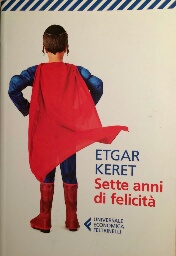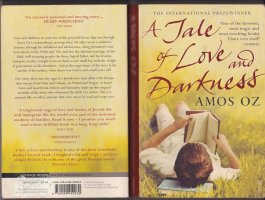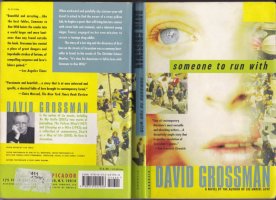Good morning, afternoon, evening,
mesmerizing novels the ones I read by the Israeli writers Grossman and Oz.
Last week in class Federica added a few names to them, since she had read books by Etgar Keret and Abraham Yehoshua.
It has to be said that those writers, whose book I've read, do have a very special, delicate and clever sensitivity, so to mesmerize with the stories they write. The perception of time and its quality changes when you're immersed in this type of novelry. And then you surface from your immersion far different from before.
I felt struck reading "Someone to run with" when I found on page 153 of my copy the name of Marianne Faithfull, a singer whose songs I made my students listen to in a mental health department, thinking that her music had something special particularly from the period after the drugs.
If she recovered, I thought, with her music and voice my students too might. And actually they did, surprising so many, but not me, since it is so important to find and strike very deep chords so to make them vibrate and produce the energy you need and you might not even know you have.
In addition, on page 243, one more surprise: the protagonist sings the very same song that so many times I've made my students listen to, thinking of it as capable of stimulating a vision, since art is involved: "Starry Starry Night".
"I want to sing "Starry Starry Night", Tamar said quietly. It is a song about Vincent van Gogh"........."Why make us suffer?" whispered a lapsed yeshiva boy, and a few boys giggled."Shhhhh!" said Pesach, overflowing with kindness. "Let the girl sing."
I also remember how impressed I was by the photo of Amos Oz's family when he was a child in the novel whose cover you can see here. I thought so long of the feeling of his that made him decide to publish the photo too, after so long, and partecipating personally in the film that Nathalie Portman made of this novel.
The world is a better place when you know these people exist. And they are everywhere, it's up to us to find them and enjoy any possible connections.
Federica, thanks for the jacket you sent me. Now it's your turn to write about the Israeli authors you love.
Whoever wants to, is very very welcome.
Thank you for your comments, Federica. These passages made me think that narration can highlight how children are perceptive, and that so many times listening to them would teach us so much about life and ourselves too.
Life Robust joy / healthy childhood / strength of the sky./ Heroes are the children / who mitigate the evil./ They grow of wealth / offered to those who live./ The words of the children / tell us the fate





Comments
Some times ago I read an article that presented Etgar Keret, a young Israeli journalist and artist, so I wanted to read his last book: "The seven good years". The approach to problems that who lives in Israel has is very singular: the everyday life has to deal with frequent attacks and with the hate of people; so growing a child in this situation is very hard. The ingenuity of the child's questions brings back to the right dimension of things and using simple words it's possible to teach great values. This is an example: after being very harshly scolded by a taxi driver for breaking a plastic ashtray and after the hard father's reaction to the violent words used by the driver, the child said: "Dad, what did that man say?" (to be continued ...)
RSS feed for comments to this post